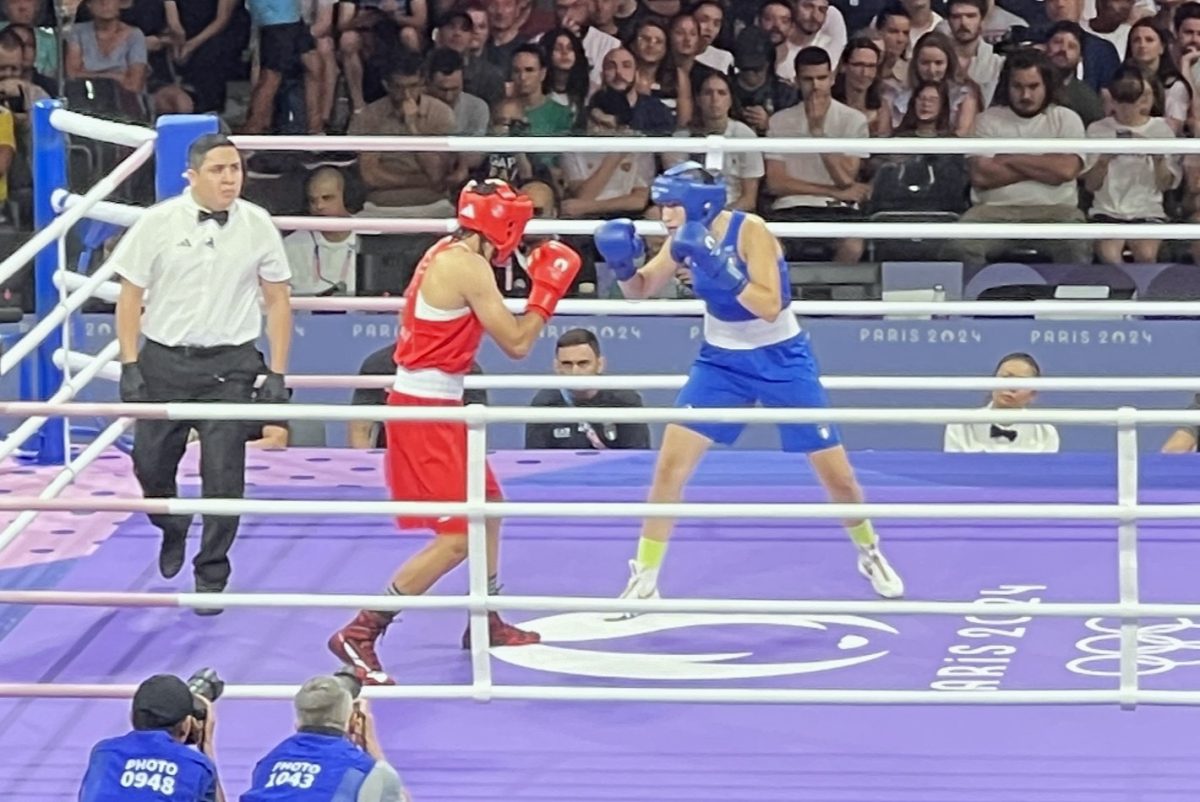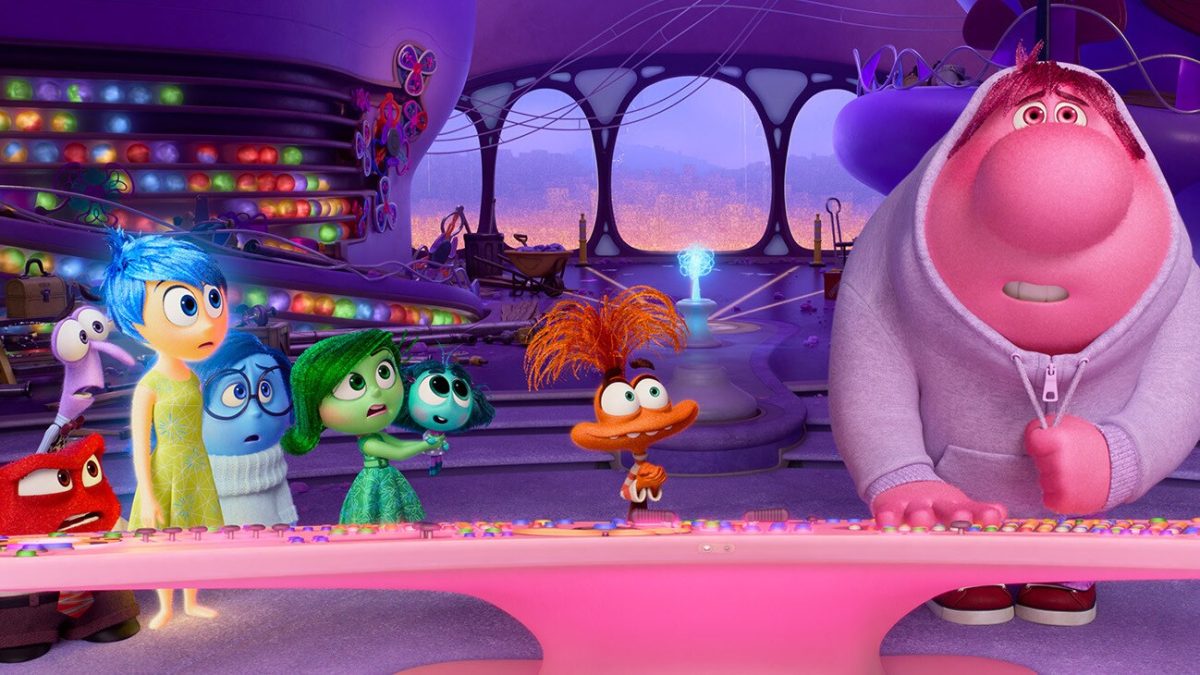This review contains spoilers.
Everyone remembers the release of “Black Panther” in 2018, especially the cultural sensation it became as one of the first superhero films with a mostly Black main cast. However, the rise to international stardom of actor Chadwick Boseman is the aspect I most fondly remember.
Although I had never heard of him before “Black Panther,” his power and charisma in this movie hammered in my mind that he was Hollywood’s rising star. This sentiment was furthered by his appearances in “Avengers: Infinity War” and other non-Marvel movies like “Da 5 Bloods.” Although Boseman himself went through a period of burnout after the “Black Panther” phenomenon, many fans were still chomping at the bit for a sequel.
Tragically, life did not agree with the wishes of the masses. Diagnosed with stage three colon cancer in 2016, Boseman succumbed to his illness in 2020; the world was shocked due to his diligent efforts to keep acting. Marvel had two daunting challenges ahead.
The first was to make the sequel a fitting tribute to the life and power that Boseman gave to “Black Panther.” Secondly, the film had to deliver on the hopes of a great sequel without its main character. We waited years for this film’s release, and what we got didn’t exactly clear the hurdles.
STORY
Personally, I feel as though the story takes a major step down from the first film, with the first example being its overarching conflict. In “Black Panther,” the fight between T’Challa and Killmonger was one of betrayal, kin-slaying, and extremism versus non-interventionism. This was a realistic and poignant conflict, as it wove both personal grievances with ideological standpoints, albeit fought with actual blades instead of metaphorical ones.
The conflict between Talokan and Wakanda, in comparison, is dependent on the fact that Namor is uncompromising and doesn’t want to use his fellow vibranium-rich society as an example to protect his people from the outside world. There is the subplot of Ramonda and Shuri’s trauma over T’Challa perpetuating the conflict, but I still don’t feel great about it.
The idea of Shuri and Namor suddenly deciding to end the conflict, as “vengeance has consumed both of them,” also feels a bit rushed. After Wakanda becomes adamant about protecting Riri, the rescue mission kills a Talokani, and Namor literally kills the queen of Wakanda, why in the hell is Shuri forming an alliance with Talokan? Ending the conflict and going their separate ways, I can understand, but allying together?
Namor still needs to face judgement from the Wakandan council for killing a sovereign ruler, while Talokanis should also seek justice, as Wakanda attempted to destroy their country. The peace between the two seems forced by the writers, who clearly wish to finish their nearly three-hour-long movie sooner rather than later. The subplot of outside countries finding vibranium in the Atlantic gets swept under the rug, which is unfortunate.
I won’t trash the entire plot, though, as there are some interesting nuggets in there that I hope are developed further. I really liked the discovery and development of Talokan and Namor, even if it overshadows Wakanda’s place in the narrative. Shuri’s uncertainty about the Ancestral Plane and having to face Killmonger instead of her family added another dimension to the final battle.
In fact, the times when the movie highlights the differences in how Shuri’s brain and body work as compared to T’Challa were amazing. Starting from the first movie, I had wondered how Shuri’s affinity for technology and modernism would mix with the more traditional facets of the Black Panther.
CHARACTERS
God, I love Okoye, and that’s not just because I loved Danai Gurira from “The Walking Dead.” In my opinion, she has the most roles in the movie as a stout general, comedic relief, and awesome fighter, and plays them all phenomenally. Namor is also up there with his fascinating backstory, charming-but-ruthless demeanor, and strong connection to his people that I can’t help but find endearing.
Ramonda was a strong and steady presence in the first half, and finding out what happened to Nakiya and M’Baku is never unwelcome. Agent Ross is there, too! It’s good to know he’s still participating in government subterfuge for the Wakandans.
Shuri and Riri are the characters in the main group about whom I hold mixed feelings for. The ending with Shuri properly grieving her family over a fire was truly touching and tear-inducing, but I’m not fully on the Shuri train just yet. She is a good protagonist, but the story’s rushed ending gave me a bad taste in my mouth.
Riri suffers from a terrifying new problem in Marvel movies that I like to call “The America Chavez Crisis.” This is when a new character is introduced, but rather than portray natural growth, the writers decide to degrade them to plot points with random chunks of character development sprinkled in. Obviously, I’m not a fan of this method, and it’s a shame because Riri is an interesting character with a lot of potential.
SETTING
Wakanda and Talokan are perhaps some of the most appealing settings in the Marvel Cinematic Universe. I’m a sucker for futuristic cities built up by the people indigenous to those areas. The ideas of laser weapons, underwater cities, and flying ships all have their science fiction roots in western and European traditions, but to see those same concepts independently developed in Africa and the Americas warms my heart.
The architecture, culture, technology, and lifestyle are just so different from anything visible in real life today, and it’s great that the creators of this movie want to explore it. I beg you, Marvel, give us a two-hour movie of people just living their lives in Wakanda or Talokan!
As for the other sets, they are more-or-less standard for a Marvel movie, I suppose. Washington D.C. is boring, apart from a bridge fight that was interesting. We got to visit a lot of previously shown locations in Wakanda, particularly the throne room and Shuri’s laboratory.
I would’ve never associated Central America and Haiti with a “Black Panther” movie, but they were utilized well. The only real confusion I had was during the final fight, which happened in — the middle of the ocean? With a desert only a few miles away? If anyone can figure out where this final fight is supposed to have taken place, I will personally give you a pat on the back.
TRIBUTE
As one might expect, measures were taken to honor the late Boseman. In fact, the film opens with T’Challa’s canonical death scene, which is a grim shock to both his nation and close family. After a silent, mourning flicker of a Marvel logo, with videos and pictures of his likeness strewn around it, we are sent to the funeral of the king.
I believe that this was the best sendoff to Boseman in the Marvel Cinematic Universe, more than a black screen with text or a compilation video could contribute. And therefore, the mourning of the character and man drives the audience forward unto unknown waters.
Without words, the audience understands that the queen and her daughter are grieving throughout the entire film. This is proven through Ramonda’s absolute devastation and desperation once she learns both of her children could possibly be dead. Or take Shuri’s moment of silence once she recreates the Heart-Shaped Herb, an act that could’ve saved her brother.
And of course, Shuri turns to all-out war once her family is taken from her, once again reducing her to a helpless fool. It’s terrible to pigeonhole an actor into one role, but T’Challa and Boseman really do feel like the same person for portions of this film.
Tragically, Marvel had to fumble a perfectly good tribute at the end. In a mid-credits scene, it’s revealed that Nakia and T’Challa had a child and hid him away in Haiti. He provides one last link of family to Shuri, and is also named T’Challa.
I am not a fan of this choice for two reasons: first, it gives the impression that Shuri as the Black Panther has a set time limit, and second, it feels like Marvel wants to give the Black Panther new blood. Boseman made this character what it is; setting up any sort of replacement for T’Challa will feel hollow and insensitive.
Overall, while there were many aspects of the film I wish were executed better, I can’t deny the emotional grip it had on me. R.I.P, Chadwick Boseman; may all the stars be closer to you up there. 3.5 out of five Crabsters!






























